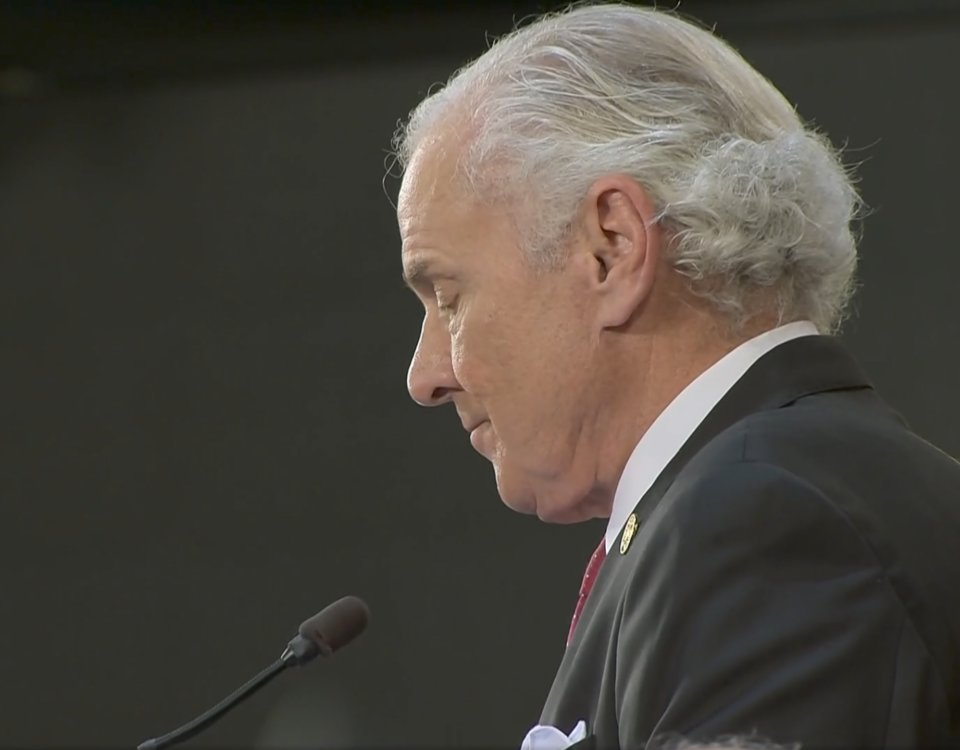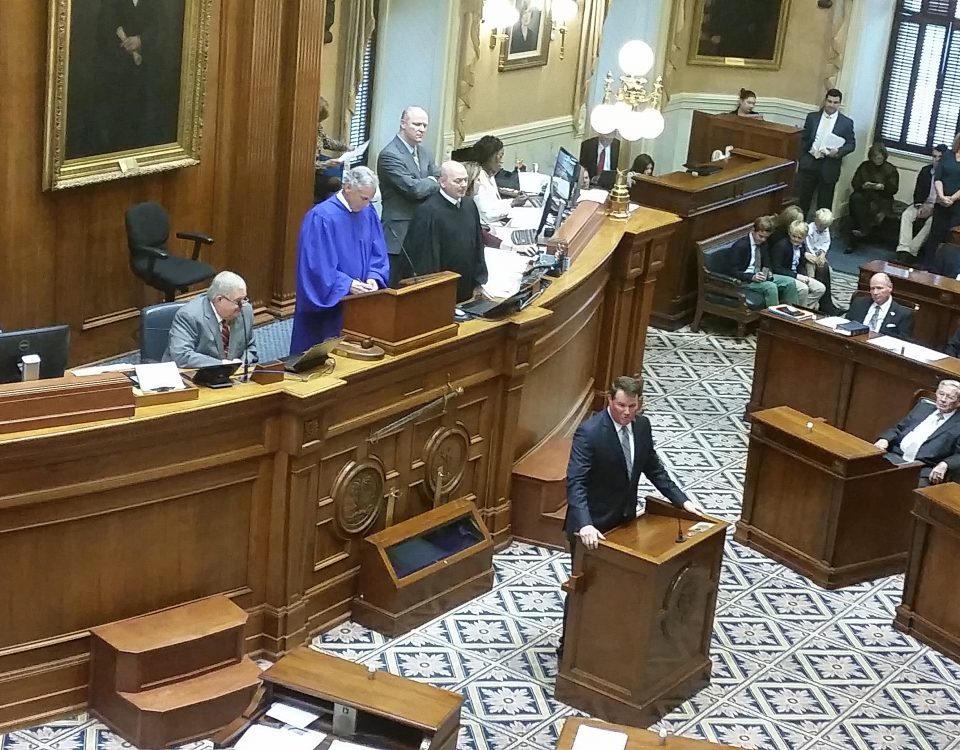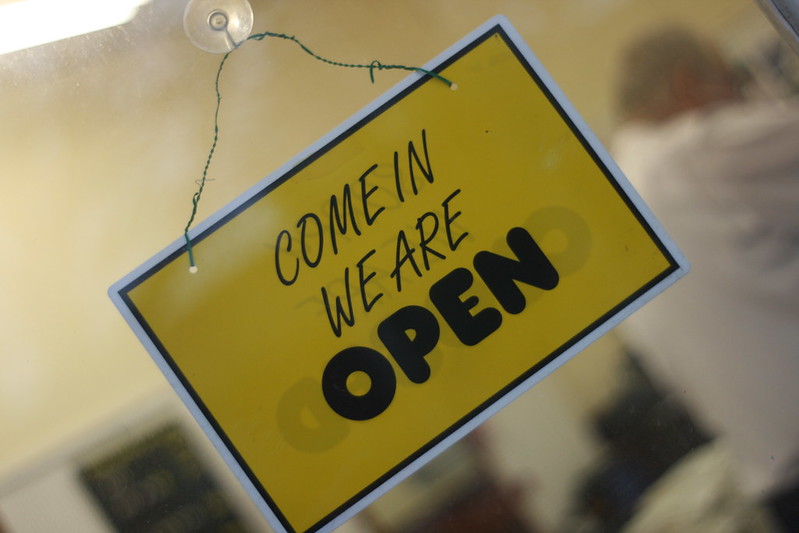
Businesses need confidence to recover
July 11, 2020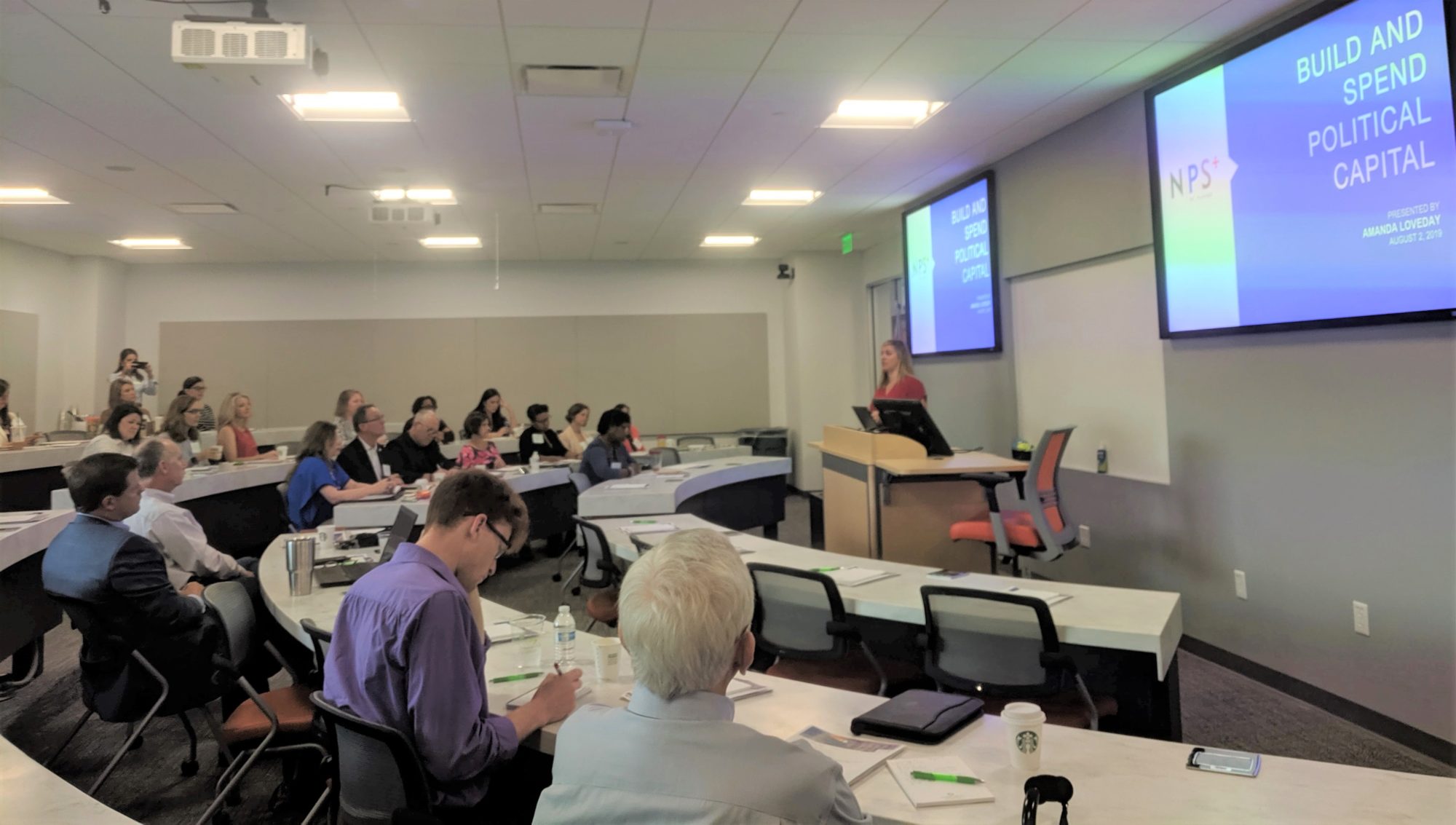
Advocacy 101: Meet Matt Moore
July 27, 2020Advocacy 101: Meet Amanda Loveday
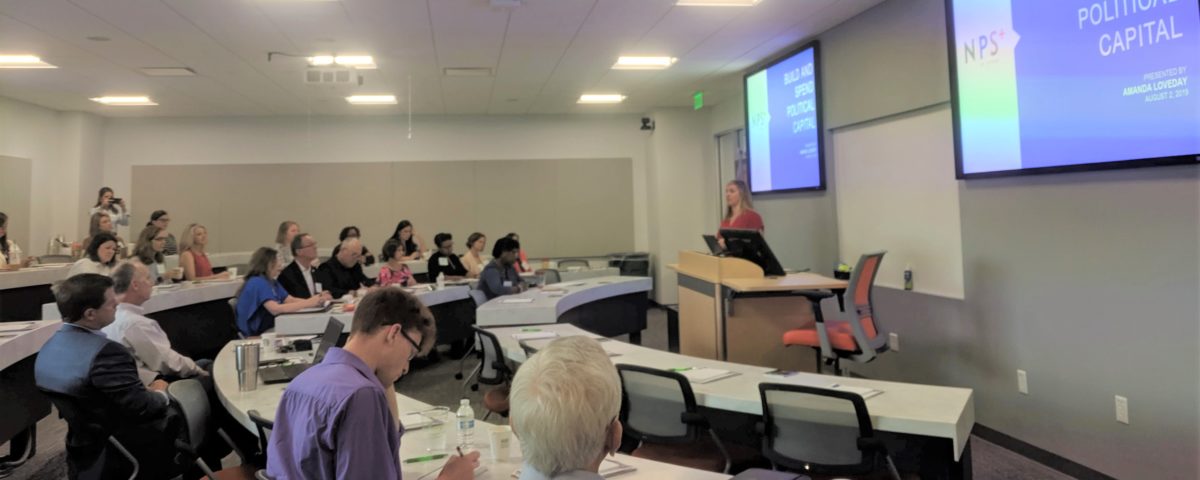
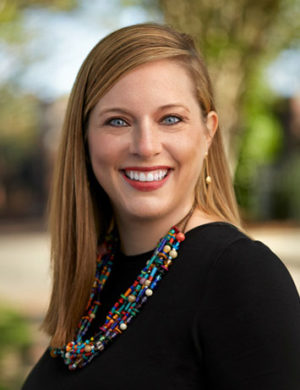 Amanda Loveday graciously agreed to speak again this year to our Advocacy 101 class. Amanda and I first met more than a decade ago when she was Executive Director of the S.C. Democratic Party and I worked as the Communications Director for the SC House Republican Caucus.
Amanda Loveday graciously agreed to speak again this year to our Advocacy 101 class. Amanda and I first met more than a decade ago when she was Executive Director of the S.C. Democratic Party and I worked as the Communications Director for the SC House Republican Caucus.
Amanda is currently the Chief Operating Officer at NP Strategy in Columbia and the Chief of Staff for United the Country, a pro-Joe Biden SuperPAC.
Amanda graduated from the University of South Carolina with a degree in Broadcast Journalism and started her television career at Dateline NBC as an Assistant Producer in New York City. She moved back home to work with SC Educational Television (ETV) on their successful Ready to Vote campaign and weekly news magazine program, The Big Picture.
After spending time covering politics as a journalist, Amanda found her calling in politics and became more involved on a partisan level. She effectively managed campaigns from the statehouse level to the statewide level and served as the Executive Director of the South Carolina Democratic Party.
Prior to joining NP Strategy, Amanda served as the Communications Director to the Assistant Democratic Leader, Congressman James E. Clyburn. Amanda has been named a “Top Political Influencer” by Campaigns and Elections Magazine.
1. Who got you into advocacy?
Advocacy wasn’t something I realized was a broad term until the last few years. In the past, I would hear the word advocacy and think lobbyists sitting in the State House pushing for one issue or another. Honestly, the first time I realized there could be a grassroots advocacy movement was in 2013 when a group of Ashley Hall group of moms stormed the State House and demanded gun reform. The moment taught me that I had been involved in advocacy for much longer than I realized. However, it was my former boss, Congressman Jim Clyburn, that taught me the importance of advocacy and providing a voice to the voiceless. I traveled the state of South Carolina with him for nearly two years. Almost every week, we would visit another town in our state and I would see the multiple reasons he does what he does and how critical it is to give stand up for those who need it most.
2. People see the partisanship in politics and last year’s Advocacy 101 attendees were stunned to hear most of us are friends (or frenemies). Why is that?
Why were they stunned? Because, unfortunately, politics these days is so partisan and divided. Most individuals watch the news and think that’s how it is in real life. Sadly, there are some groups of political staffers and politicians who buy into that narrative but for the most part the majority of us understand it’s part of the game and, as they say, we don’t take the work home with us. Listen, it’s hard not to take some of it personally, especially when you’re so passionate about an issue or a person but it’s part of what we do. I pray that one day our politics go back to what we used to be, which provided for a place for cordial friendships and conversations about the issues. Not this place of division and bickering. Everything in today’s world is a political statement – just look at COVID-19. Wearing a mask shouldn’t be a political statement. Just like wearing a seat belt isn’t. But there are some groups that have made it one and here we are. I’m proud that I’ve been able to make friendships on either side of the aisle. One of my dearest friends is the Chief of Staff to a Republican Congressman and after lengthy conversations one of us will typically end with, “good thing we a agree on loving unicorns and rainbows.” Sometimes you can’t take yourself too seriously.
3. What news do you read or listen to on a daily basis? How do you stay informed?
I try to read and absorb it all. I have a subscription to nearly every outlet in South Carolina, the New York Times, Washington Post and many others. Admittedly, I get a lot of news from my Twitter feed. For all the drama and inaccurate information that Twitter provides our world today, I do find it helpful to see it all in one place. I can see the conservative leaning headlines on the same story that I’m reading from the more progressive outlets. It allows me to have a good balance of each story. I HIGHLY recommend anyone who is a consumer of news to not just read one outlet or group of outlets. If you love the New York Times, read the Wall Street Journal. If you love the Washington Post, read the Washington Times.
4. When you’re dealing with clients, what is the biggest misconception business leaders or non-profits have about advocacy?
That it’s easy. Advocating for something is hard work. It takes time, relationships and strategy. Especially in a state like South Carolina, who you know is 90% of the game. I’m not saying that it should be that way but it is.
5. What is the biggest takeaway you hope people get from the class?
I hope this class takes away something similar to last year, which was, that we can all honestly get along. We don’t have to be at each other’s throats all the time and, typically, we all have more similar beliefs than not. It’s important to me that the leaders within our communities understand the importance of working together and the possibility to end this horrific political divide.
6. Everyone has an unusual skill. What’s yours?
I really don’t have one. I can type 80 words per minute. Is that even good?
Advocacy 101 will be on Friday, August 28 and Friday, September 4th from 8:30 until 1. You can register for the class – and take control of your advocacy – here.


